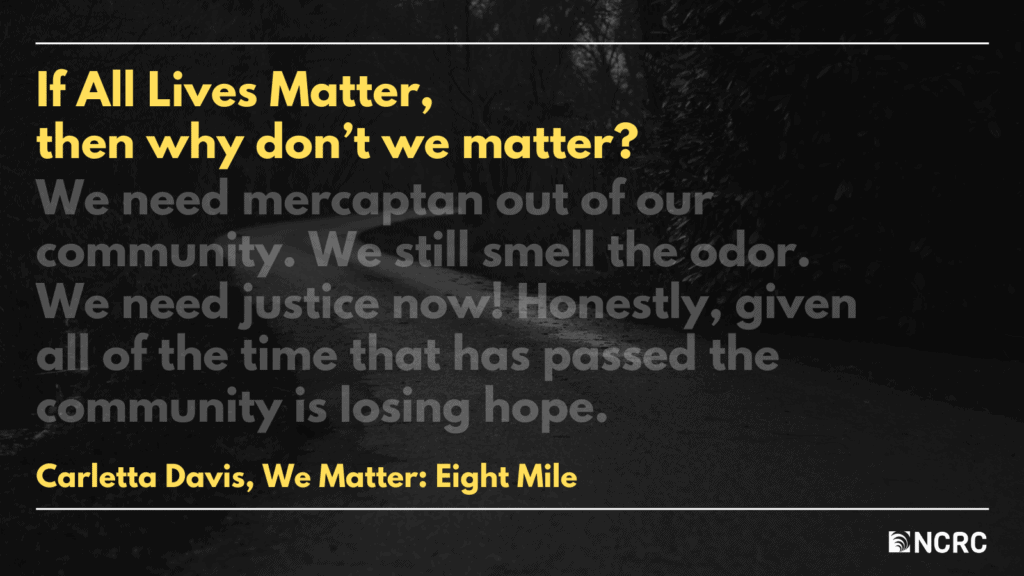This week, the National Community Reinvestment Coalition (NCRC) and the South Alabama Center for Fair Housing (SACFH) filed a request for reconsideration of the Department of Housing and Urban Development’s (HUD) determination in a fair housing complaint the two organizations submitted in 2017.
The complaint was filed on behalf of residents in the predominantly Black community of Eight Mile, Alabama. It called on HUD to address the harm caused by long standing failures of two utility companies, SPIRE and Sempra Energy, to properly engage and address a 2008 chemical spill.
When the predominantly affluent, White community of Porter Ranch, California, experienced a similar chemical spill in 2015, Sempra Energy took extraordinary care to redress the hazard it caused to the community.
Trump’s HUD sat on the complaint for three years, and then found that the utility companies’ ineffectual attempt to address either the spill or the lingering health impacts in the community of Eight Mile was not discriminatory.
HUD’s decision means no action will be taken by the agency to address this injustice.
The request filed this week provides details on how the Trump Administration did not consider the evidence indicating the utility companies’ failure to provide a comprehensive response to the chemical leak in Eight Mile is based on race.
After SPIRE acquired Sempra Energy’s subsidiary, Mobile Gas, in 2016, more than eight years after the initial spill, it failed to engage with the community and address the ongoing effects of the spill, including health impacts on the community, lower property values and the impossibility for residents to enjoy the benefits of homeownership in Eight Mile. The companies’ inaction meets both the disparate treatment and disparate impact standards under the Fair Housing Act.
Under the Trump Administration, the investigation was conducted by an agency that openly dismantled fair housing regulation. President Biden has already rolled back several of these bad policies in an executive order “
advancing racial equity and support for underserved communities through the federal government.” The Eight Mile complaint is an early test of whether or not HUD will reverse course on the Trump administration’s inaction and disinterest in racial equity..
At a time when there is hope surrounding Biden’s promise to address racial inequalities, Eight Mile is just one example of how discriminatory monitoring and oversight of environmental disasters has plagued Black communities for decades. Communities of color have higher exposure rates to air pollution and are more likely to be located next to hazardous waste sites and industrial facilities. Climate change continues to disproportionately affect communities of color. These are communities like Flint, Michigan; communities that can barely access clean water and spend every day facing health risks brought on by environmental injustice.
This is an early test for the President, and newly-appointed HUD Secretary Marcia Fudge, to show that this administration will enforce fair housing laws that were weakened or abandoned by the Trump Administration. Not only does this pose a direct chance for the Biden Administration to showcase their commitment, it is a fulfillment of a promise. A promise that, if elected, the administration would tackle racial inequality perpetuated at all levels.
Rose Ramirez is a senior program manager at NCRC.



